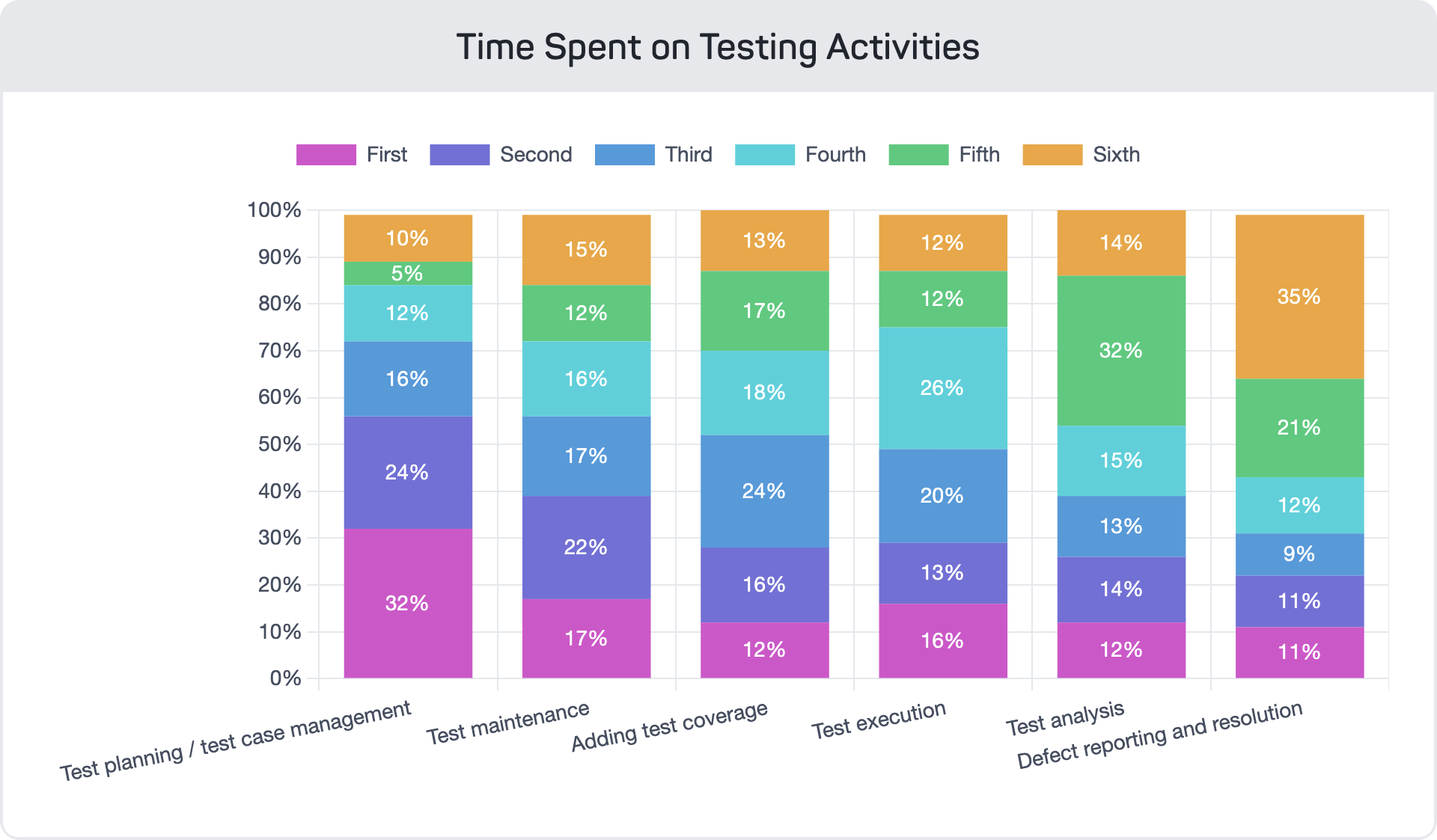Quality assurance and quality engineering are elevating software testing by scaling testing across the user experience. They’re increasing test coverage across high-value customer journeys, expanding functional and non-functional testing, and integrating testing more deeply into development.
But accomplishing these tasks takes time and effort. Quality engineers are skilled and adaptable, but they can’t add more hours to the day.

In our 2022 Testing in DevOps Report, we asked quality contributors how they spend their time. Some work, such as test planning and management, is critical for adapting testing for better customer experiences and faster development. But tasks like test maintenance don’t directly contribute to scaling testing strategies. Fortunately, test automation tools are evolving to support quality engineers to focus on high-impact work.
Scaling Testing Means Empowering Testers to Focus on Quality
Scaling testing in a sustainable way means finding technologies that enable quality engineers to invest their time and talents in work that supports more holistic testing strategies.
Test Creation
Challenge: creating tests is a fundamental part of quality, but code-heavy test automation tools limit quality engineering teams’ ability to expand testing with labor-intensive test creation processes. Test creation is siloed to QA automation engineers, SDETs, or developers, further inhibiting QA as they work to scale their quality engineering practice.
Solution: low-code test automation offers faster, more collaborative test creation processes that enable QA teams to grow software testing strategies even as development cycles accelerate. Typically considered most useful for business roles and manual testers, advances in low-code test automation have made these highly efficient solutions useful for anyone engaged in testing, regardless of coding experience.
See how NetForum Cloud increased automated testing by 40% with low-code test automation.
Test Maintenance
Challenge: Looking at the chart above, nearly 1-in-5 quality professionals said that test maintenance was their most time-consuming task. Many software testing teams are stymied in their attempts to scale automated testing as they become overwhelmed by test maintenance.
Solution: Autohealing harnesses the power of AI and machine learning to significantly reduce the time and effort needed to maintain tests. Using dozens of unique identifiers, intelligent test automation can identify application changes and update tests in response. To further amplify testing effort, autohealing capabilities reduce the amount of test maintenance needed in the long-term by cascading updates made to one flow across all tests where that test step appears.
Infrastructure Management
Challenge: Even experienced test automation teams with large numbers of QA engineers have difficulty managing testing infrastructure, especially as accelerating delivery cycles increase the rate of change. If quality engineers are forced to focus on simply managing testing infrastructure, they lose time that could be spent on expanding software testing strategies and improving test coverage.
Solution: Cloud-based test automation that seamlessly scales with your team. With a SaaS platform, quality engineering teams save valuable hours and effort that can be invested in improving the user experience. The additional flexibility of cloud-based and local test runs enables development teams to receive rich diagnostic data or fast feedback.
Discover how Wurl transformed software testing with cloud-based test automation.
Invest in Quality and Your Customers
When quality teams have more time to invest in improving testing, customers benefit. Though test creation and maintenance are necessary for building resilient software testing strategies, new test automation technologies are empowering testers to invest more of their time and effort in work that directly impacts customer retention. By lowering the skill and infrastructure barriers to holistic automated testing, low-code, intelligent test automation is supporting quality teams as they transform their organizations.
Experience the impact of low-code intelligent test automation with mabl’s 2 week free trial.





